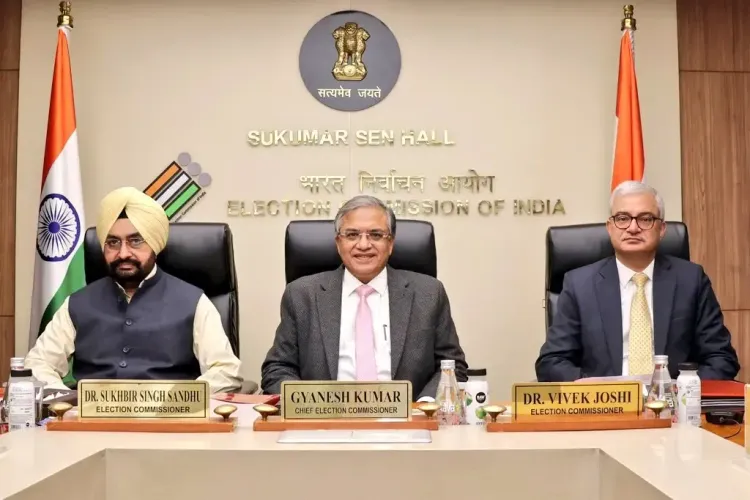How is ECI Addressing Cash, Liquor, and Drug Movement for Bihar Polls?

Synopsis
Key Takeaways
- ECI's proactive measures ensure electoral integrity.
- Collaboration with enforcement agencies to combat illegal activities.
- Guidelines for accessible polling for all demographics.
- Addressing issues of misinformation and identity verification.
- Focus on making elections fair and transparent.
New Delhi, Oct 17 (NationPress) The Election Commission of India (ECI) convened a meeting on Friday with leaders from various enforcement agencies to devise a comprehensive strategy aimed at ensuring a smooth and equitable process for the upcoming Bihar Assembly elections.
During the meeting, chaired by CEC Gyanesh Kumar, representatives from numerous departments shared their insights, recommendations, and feedback to enhance the integrity and reliability of the electoral process.
The Chief Secretary of Bihar and the Director General of Police (DGP) participated in the meeting via video conference along with the state's Chief Electoral Officer.
Discussions focused on addressing the movement of cash, liquor, drugs, and other incentives that could sway voters in the lead-up to the elections, as well as tackling the issue of fake news, which poses a threat to the electoral process.
The committee examined various topics, including limiting clandestine spending by candidates and political parties, fostering intelligence-sharing, and collaboration among law enforcement to effectively combat any financial misconduct.
Measures to prevent the transport of smuggled goods, drugs, liquor, and cash—along with counterfeit currency—through inter-state and international borders were also deliberated.
Seventeen departments participated in this high-level meeting, including CBDT, CBIC, ED, DRI, CEIB, FIU-IND, RBI, IBA, NCB, RPF, CISF, BSF, CRPF, SSB, BCAS, AAI, and the Department of Posts.
The poll panel is committed to facilitating a convenient election experience for all demographics and broadening the voter base.
It has released comprehensive guidelines to make polling stations accessible and accommodating for senior citizens. This includes setting up polling booths on the ground floor, giving priority to elderly voters, providing wheelchairs for the differently-abled, and more.
Additionally, steps have been taken to address concerns regarding women wearing burqas, a topic that has sparked debate among political parties regarding identity verification before voting.









